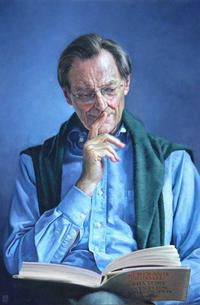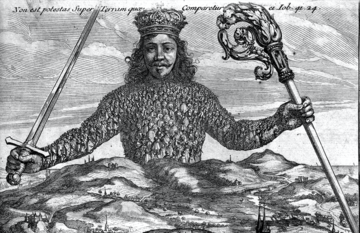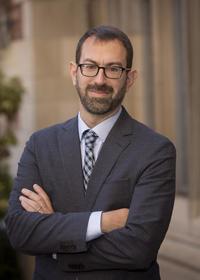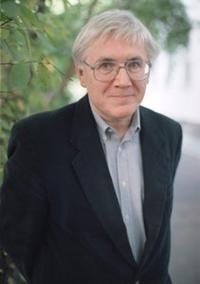The Cambridge School and the Turn to the Present
Beginning in the 1960s, members of what has been called the Cambridge School elaborated an influential approach to the interpretation of texts which emphasised historical contextualism. In their view, intellectual historians ought to understand the work of past authors as historically specific responses to local questions which emerged within a particular social and political context rather than to presume anachronistically that they were intended as answers to problems of perennial concern. The implication, as Quentin Skinner wrote in 1969, was that ‘we must learn to do our own thinking for ourselves’: solutions to problems that we face in the present will not be found through a study of past ideas. According to critics, this approach effectively severs intellectual history from contemporary relevance and hence reduces it to a mere antiquarian affair.
Since the 1990s, however, the Cambridge School has adopted a significantly different view of the past with respect to the present. In what observers have described as a ‘volte-face’, Skinner has defended the contextual study of intellectual history as a means of recovering alternative ways of thought which may prove useful for our current circumstances. As he has argued recently, ‘these abandoned intellectual pathways may be of more value to us here and now than some ways of thinking that we currently endorse or even take for granted’. On this view, the endeavour to study the past as a means of informing the present is fully embraced.

Quentin Skinner. Image Attribution: Kings College London (2018)
It is now possible to regard this reversal of attitude as representative of the wider ‘turn to the present’ that is currently taking place across the historical discipline. Prompted by social and political events of recent years, historians have increasingly engaged with the pressing problems of our times by setting aside previous concerns about ‘presentism’, which can refer to both the inclination to study the recent past (as opposed to earlier periods) and the tendency to interpret the past (however distant) in terms of the present. Thus, as Daniel Steinmetz-Jenkins puts it, ‘[l]ong-standing anxieties over presentism have crumbled under the weight of recent events’.
To be sure, presentism remains a subject of contention among historians. Indeed, vigorous debate ensued in response to a recent essay by James Sweet, the President of the American Historical Association, who warned that his colleagues’ preoccupation with contemporary issues does not merely lead to the writing of bad history by risking anachronistic interpretations of the past; coupled with a focus on the recent past, it threatens the ‘very integrity’ of their field by undermining its distinctive concern with exploring unfamiliar subject-matter. The turn to the present, then, has prompted anxieties about—and provoked strong defences of—the very identity of the historical discipline.
Nevertheless, a growing number of historians have highlighted the inescapability of presentism: contemporary concerns necessarily shape one’s view of the past and approach towards history. Seen from this perspective, what remains controversial is not whether historians ought to engage with the present, but how they should go about doing so—the question at the heart of what Steinmetz-Jenkins has termed the ‘new’ debate over presentism. As the wide-ranging contributions to the recent Modern Intellectual History forum on ‘History and the Present’ indicate, presentism can take several distinct forms, and it is by no means clear precisely which approach historians should adopt in the wake of the turn to the present.
~
For many historians, the past offers instructive analogies that can help us to understand the present. This assumption is precisely what led the Faculty of History at Cambridge to introduce a series of podcasts entitled ‘History of Now’. In analysing historical events such as the Black Death of the 14th century and the Bombay Plague Epidemic of 1896, the podcast series aims to illuminate the current coronavirus pandemic by putting the ‘past and present into dialogue’. The same assumption is also what drove David Runciman – the host of ‘History Of Ideas’, a popular podcast series which explores the thought of a canon of past thinkers ranging from Hobbes to Gandhi in order to ‘help make sense of what’s happening today’—to appeal to Hobbes’ arguments in Leviathan to explain the nature of contemporary politics amidst the pandemic.

Thomas Hobbes, Leviathan (1651)
It is certainly possible for historical analogies to serve as a means of comprehending contemporary events. However, the attempt to explain the present through the past often carries with it the tendency to view the past in terms of the present, opening the door to anachronism (for instance, by describing the Reformation as ‘England’s first Brexit’). Insofar as this is the case, ‘[h]istory then indeed becomes a pack of tricks we play on the dead’, as Skinner memorably puts it.
Moreover, the construction of historical analogies may not represent the best way of understanding our current circumstances since analogies between the past and present tend to overlook the historical specificity of the latter. Indeed, as Faisal Devji argues, ‘the rush to history serves as a way of refusing to think about the present and so the future it produces in anything but the most hackneyed ways’. The result, in Adam Tooze’s words, is that ‘historical analogies can easily become a form of dangerous nostalgia’ which not only fails to reflect contemporary reality but also prevents us from confronting it. Given the unprecedented nature of our current circumstances, it is important to appreciate the extent to which the present is as strange as the past.
Historians who are committed to engaging with the present whilst at the same time keen on emphasising its distinctiveness from earlier periods have pursued a different approach, namely what Skinner has called ‘the investigation of paths not taken’. This approach has informed ambitious attempts to recover long-abandoned modes of social organisation as well as forgotten ways of thinking about key concepts such as liberty, equality, and capitalism. If, as Samuel Moyn contends, only by imagining alternatives to the present does it become possible for us to respond to the problems of today, then the historical recovery of these past practices and beliefs is clearly valuable.

Samuel Moyn. Image Attribution: Yale Law School (2021)
Yet, this approach is not completely satisfactory either. In his recent inaugural lecture, Richard Bourke points out that the attempt to excavate the past for alternatives to the present runs the risk of not explaining why these alternatives are normative for us if they were in fact previously abandoned. For Bourke, the upshot of this negligence is that the historian would be unable to recognise the unique demands of our current predicament by failing ‘to distinguish the remnants of bygone arrangements from those elements that should define the world to come’. According to this view, one should confront contemporary concerns not merely by identifying those aspects of the past which are relevant to the present, but also through emphasising the irrelevance of previous alternatives and their inapplicability to our current context. To this extent, far from being at odds with the turn to the present, the antiquarianism implied by the initial approach of the Cambridge School is in fact compatible with presentism.
~
The endeavour to show why certain paths that were available in the past were not taken is a genealogical one which serves to highlight the contingency of the present. In attempting to explain how things turned out the way they did, one also implies that they could have been otherwise by demonstrating the extent to which the path from the past to the present depended on particular accidents, choices, and decisive turning points. By destabilising the present in this way, history can help to uncover the future possibilities of our own times.
Characteristically, in order to show how previous developments have led to the present, the genealogical approach is often applied to the study of the twentieth century and, indeed, contemporary periods of history. By contrast, both the construction of historical analogies and the recovery of past alternatives typically focus on the distant past as a means of informing the present. Genealogies thus represent a distinctive form of presentism in that it studies the recent as opposed to the distant past for the sake of interrogating contemporary beliefs and practices.
An increasing number of intellectual historians have come to use the past as a critical genealogy of the present. Raymond Geuss, for instance, has employed his own biography and personal history to show how the specific circumstances in which he grew up shaped his current views and led him to diverge from the ‘total ideology of our era, the conjunction of democracy, liberalism, and capitalism’. By revealing the contingency of one’s beliefs and the possibility of thinking differently, Geuss hence challenges some of the values and assumptions that we now take for granted. His account, therefore, serves as a critical ‘history of the present’, as Michel Foucault had proposed.

Raymond Guess. Image Attribution: Institute for Intellectual History (2019)
This genealogical approach has proven popular with historians of political thought. Indeed, those who are sympathetic to political ‘realists’ such as Geuss have, in recent years, begun to historicise the work of John Rawls as well as to trace the development of twentieth-century political philosophy as a means of criticising contemporary Rawlsian theory. Significantly, the critical purchase of such an endeavour stems from the underlying connection between ‘political realism’ and the historical contextualism of the Cambridge School. As Annabel Brett highlights, both share the assumption that speech is essentially related to politics as a field of social action. By revealing how the political context has historically shaped the contours of recent political thought, historians effectively align themselves with ‘realists’ who repudiate ‘ethics-first’ approaches to politics and are keen on exposing contemporary forms of philosophy as political ideology. The methodology which Skinner has elaborated over the years is therefore implicitly ‘realist’, as he himself acknowledges in a recent interview.

Annabel Brett. Image Attribution: Princeton University Press (2011)
Certainly, one might argue with Sweet and others that the preoccupation among historians with contemporary debates risks undermining the identity of history relative to other disciplines such as political theory by narrowing the scope of historical inquiry to issues which seem relevant today. Yet, perhaps the distinguishing feature of the historical discipline may not rest entirely on the scope of its subject matter, but also on some of its more fundamental methodological commitments. As a student of Skinner, Brett recognises that acts of genealogical exposure are themselves a form of speech that is always related to the context of politics within which the historian is situated—a fact which, to borrow her words, serves to link ‘the exposé of past and present’. To this extent, the contextualism of the Cambridge School implies a political intervention, one which takes the form of a hermeneutic that enables us to understand both past and contemporary thought in a new light vis-à-vis the political context. If historians can continue to intervene in the present by helping us to reflect on familiar questions in an unfamiliar way, then they will indeed have much to contribute towards the turn to the present.
Ming Kit Wong is a recent graduate of the MSc in Political Theory at the University of Oxford. He previously also completed the MPhil in Political Thought and Intellectual History from the University of Cambridge, where he read History as an undergraduate.


